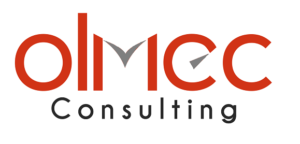Market Entry Modes for Foreign Companies Entering the UAE
Entering the United Arab Emirates (UAE) market presents a significant opportunity for foreign companies due to its strategic location, robust economy, and favorable business environment. However, success hinges on choosing the right market entry mode. Here’s a look at some effective strategies for penetrating the UAE market:
- Exporting
Exporting is often the initial mode of entry for many businesses. It allows companies to sell their products directly into the UAE without establishing a physical presence. This method is cost-effective and minimizes risk. The UAE’s advanced logistics infrastructure, including ports like Jebel Ali and extensive free trade zones, supports efficient exporting operations. Companies can leverage local distributors and agents to handle the complexities of the local market.
- Licensing and Franchising
For companies looking to expand with minimal investment, licensing and franchising are attractive options. Through licensing, a foreign company grants a UAE entity the rights to produce and sell its products. Franchising involves providing a UAE partner with the rights to operate under the company’s brand and business model. These approaches are particularly popular in the retail and food and beverage sectors. Brands like Starbucks and McDonald’s have successfully entered the UAE market through franchising, adapting their offerings to local tastes.
- Joint Ventures
Joint ventures (JVs) involve partnering with local businesses to enter the UAE market. This mode provides access to local market knowledge, established networks, and can navigate regulatory requirements more efficiently. The UAE government often favors JVs, especially in sectors like energy and construction. Forming a JV with a UAE partner can also facilitate compliance with local ownership laws, which sometimes require a majority local shareholding.
- Wholly Owned Subsidiaries
Establishing a wholly owned subsidiary in the UAE is a more comprehensive entry strategy, involving significant investment but offering complete control over operations. The UAE’s free zones, such as Dubai’s Jebel Ali Free Zone and Abu Dhabi’s Khalifa Industrial Zone, provide incentives like full foreign ownership and tax exemptions. These zones attract companies from diverse sectors, from technology to manufacturing, looking for a base in the Middle East.
- E-commerce
Leveraging e-commerce is increasingly viable in the UAE, given its high internet penetration and tech-savvy population. Foreign companies can enter the market by setting up online stores or partnering with local e-commerce platforms like Noon and Souq. E-commerce circumvents some of the traditional barriers to entry and taps into the growing trend of online shopping in the UAE.
Conclusion
Selecting the appropriate market entry mode is crucial for foreign companies looking to succeed in the UAE. Exporting, licensing, franchising, joint ventures, wholly owned subsidiaries, and e-commerce each offer unique advantages and challenges. Companies must align their choice with their strategic goals, resources, and the nuances of the UAE market to achieve sustained growth and success.
www.olmec-consulting.com
